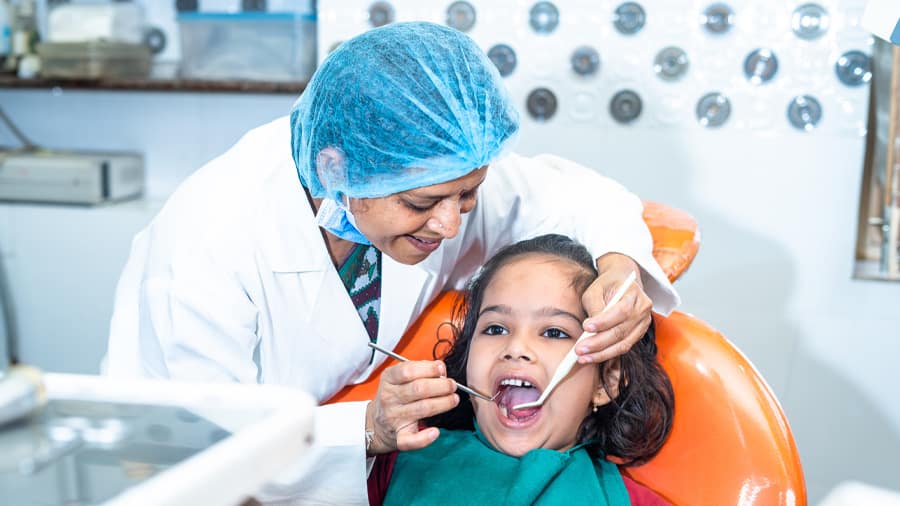-
-

TEETH WHITENING
What Is Stannous Fluoride Toothpaste?Stannous fluoride toothpaste helps prevent cavities, reduce sensitivity, fight plaque, and support daily gum and enamel health.

Selecting Dental Products
Best Toothpaste in India: Five Dentist-Recommended TypesToothpastes today are formulated to meet your every dental need and come in many flavours. Have your dental professional suggest the best toothpaste in India.
-
Science & Innovation
- ORAL HEALTH CHECK
- PRODUCT MATCH
- Colgate® | Toothpaste, Toothbrushes & Oral Care Resources
- Oral Health
- Infant & Kids Oral Care 101
- When Do Permanent Teeth Come In?


Losing his first tooth is something that your child is probably looking forward to. It is a rite of passage and it also means he may get a visit from the tooth fairy. It also means that he's growing up. Losing those baby teeth might be bittersweet for you for these very same reasons.
If you find yourself wondering "When do baby teeth fall out," know that most children lose their baby teeth during the early elementary years, but each child is different. Your child might be the first one in his class to lose a tooth, or he might hang on to his longer than his best friend or even his older brother. Keep in mind that the average age is just that. It does not mean anything is wrong if your child falls outside the range. If, however, you are ever concerned about the health of your child's teeth, make an appointment to discuss your worries with his dentist.
Most kids lose their first tooth in the years between kindergarten and first grade at the average age of six to seven years old. Don't worry if your child hits his eighth birthday before he loses his first tooth. What is more important is the order in which the teeth fall out and are replaced with permanent teeth. You might notice that your child loses his teeth in roughly the same order they came in. For example, most children lose their bottom center teeth first, which are likely the first ones that erupted when he was a baby.
Baby teeth are supposed to fall out, but if you or your child are still wondering when do baby teeth fall out, talk with a dentist. In some strange cases, some of the permanent teeth may be missing, which may make a baby tooth stick around longer since there is not an adult tooth there to loosen it. If dental problems or missing teeth run in the family, make your child's dentist aware of the problem so he can watch for it.
This article is intended to promote understanding of and knowledge about general oral health topics. It is not intended to be a substitute for professional advice, diagnosis or treatment. Always seek the advice of your dentist or other qualified healthcare provider with any questions you may have regarding a medical condition or treatment.
ORAL HEALTH QUIZ
What's behind your smile?
Take our Oral Health assessment to get the most from your oral care routine
2.3 billion
people worldwide suffer from tooth decay
ORAL HEALTH QUIZ
What's behind your smile?
Take our Oral Health assessment to get the most from your oral care routine
2.3 billion
people worldwide suffer from tooth decay
Related Articles

Dental visits
What Is A Paediatric Dentist?Visit Colgate now and learn about the difference between pediatric dentists and general dentists, and the benefits pediatric dentists provide.

Dental visits
What is a Pediatric Dentist?
Brushing and flossing
When to Start Using Toothpaste for Your BabyWhen should you start brushing my baby's teeth with toothpaste? Visit Colgate now and learn about the steps for keeping your baby's teeth in perfect condition.
Related Products

Helping dental professionals
More professionals across the world trust Colgate. Find resources, products, and information to give your patients a healthier future







